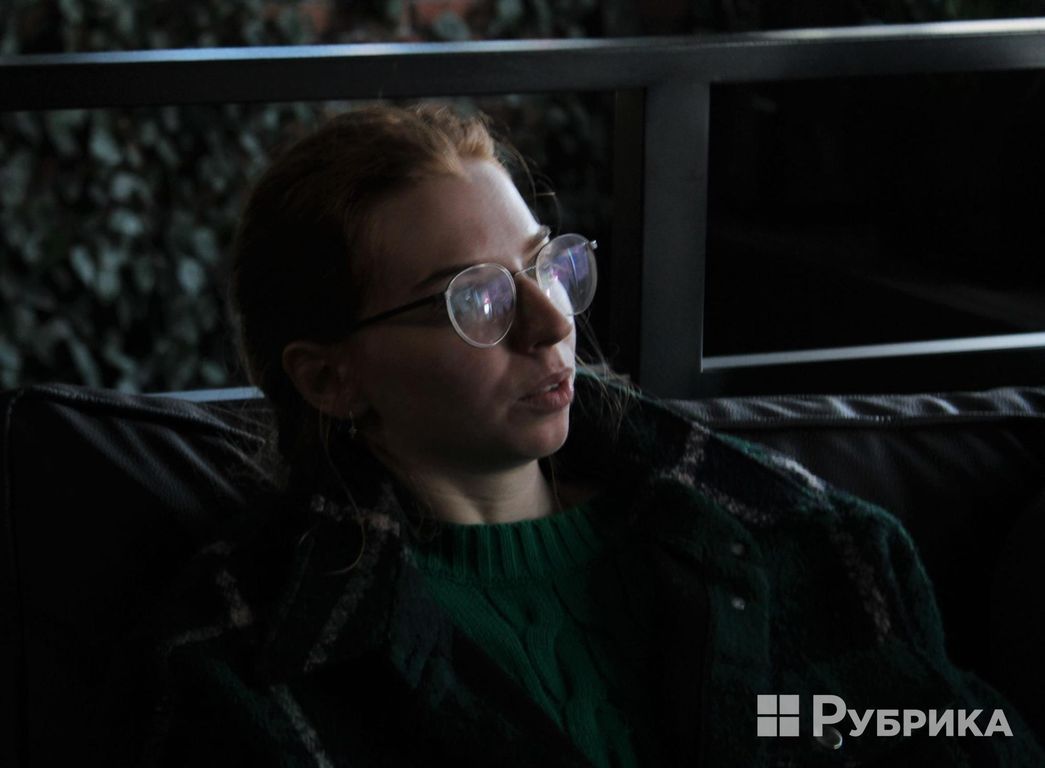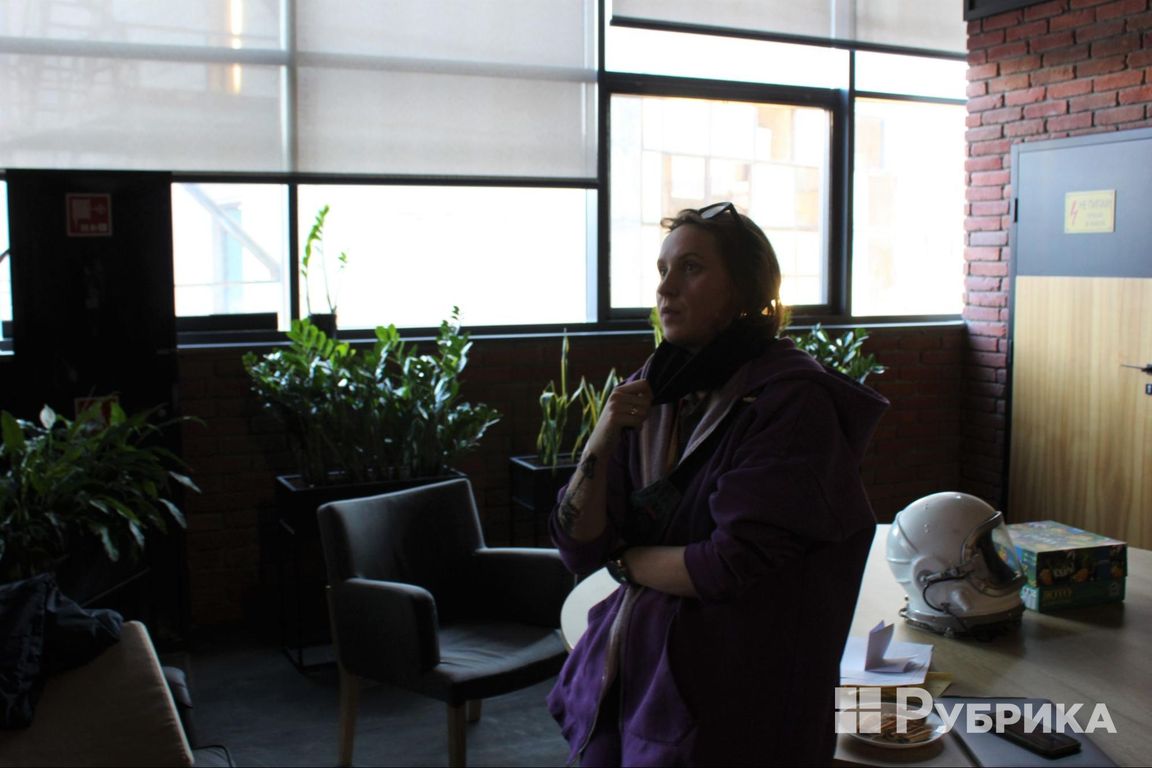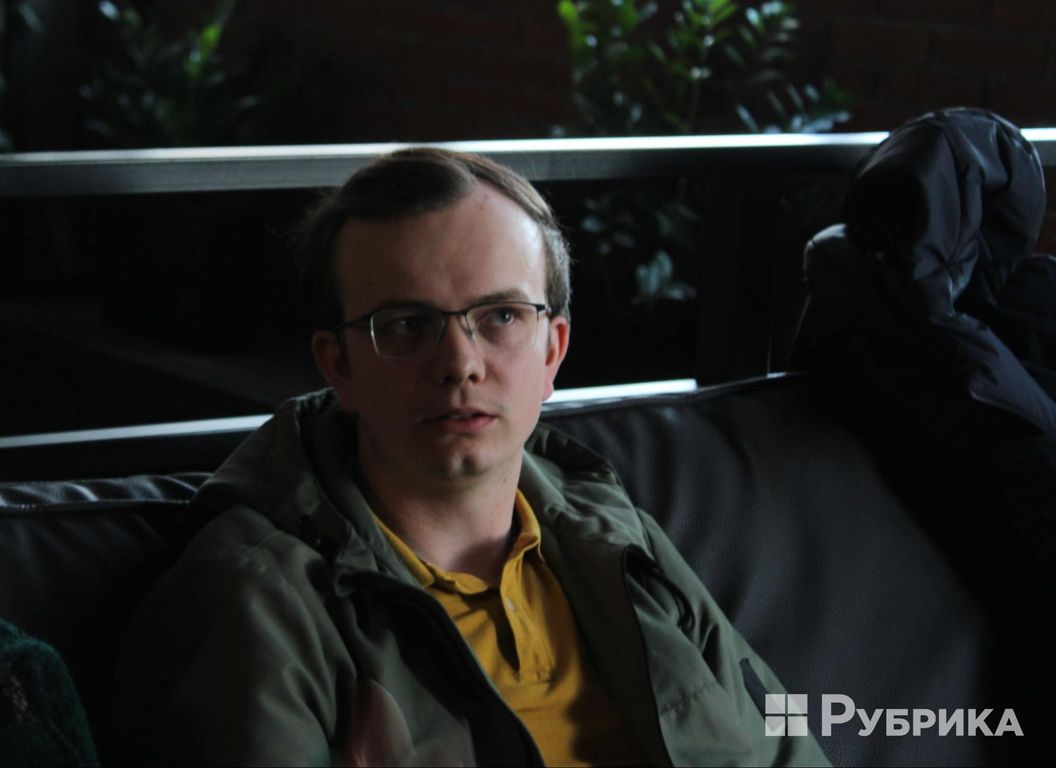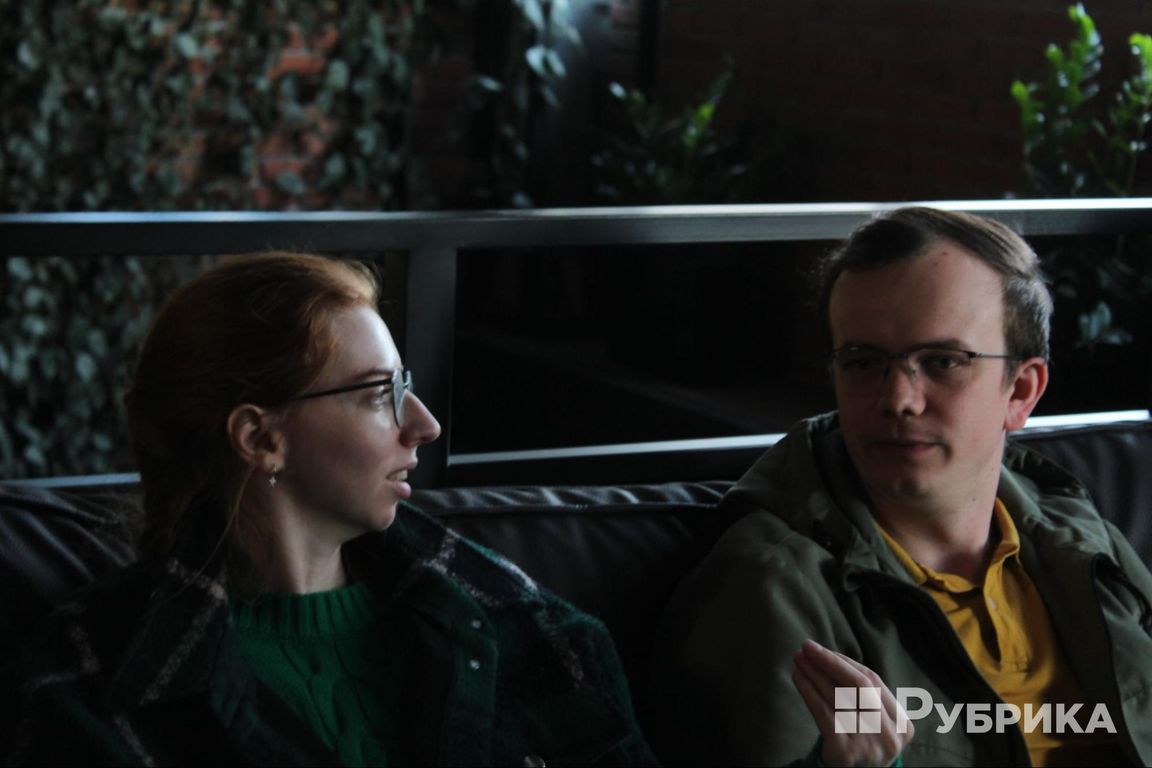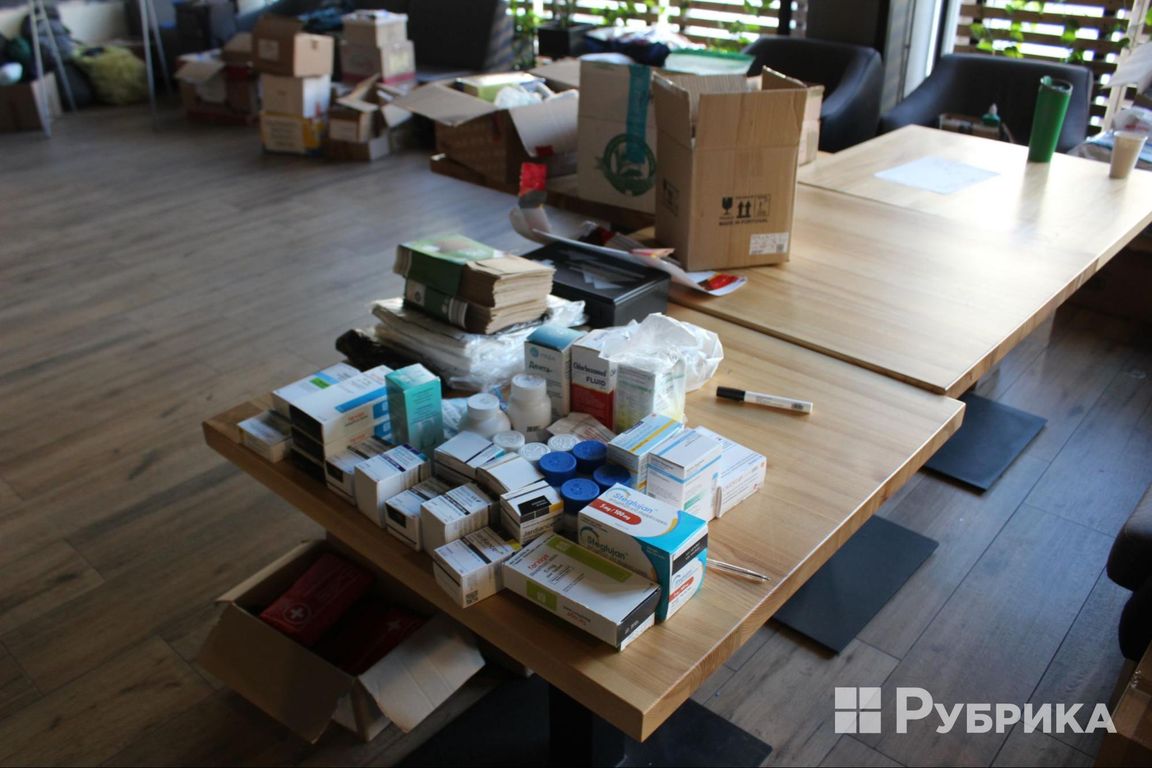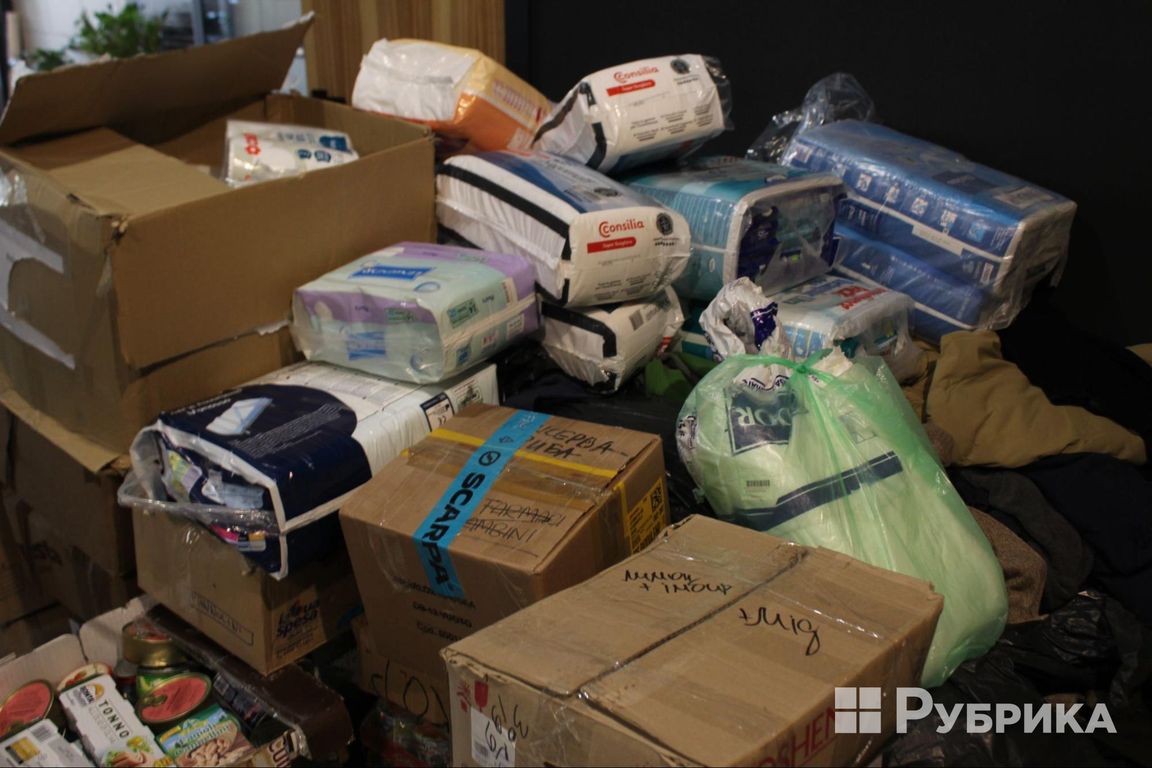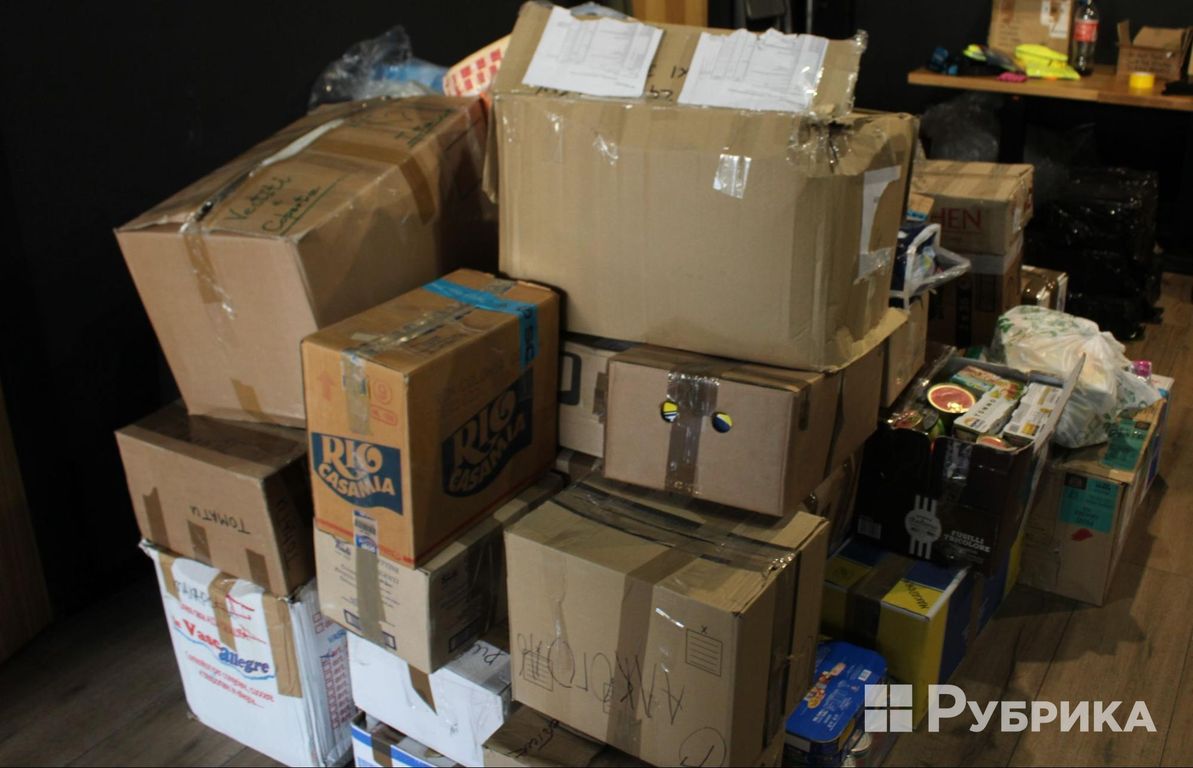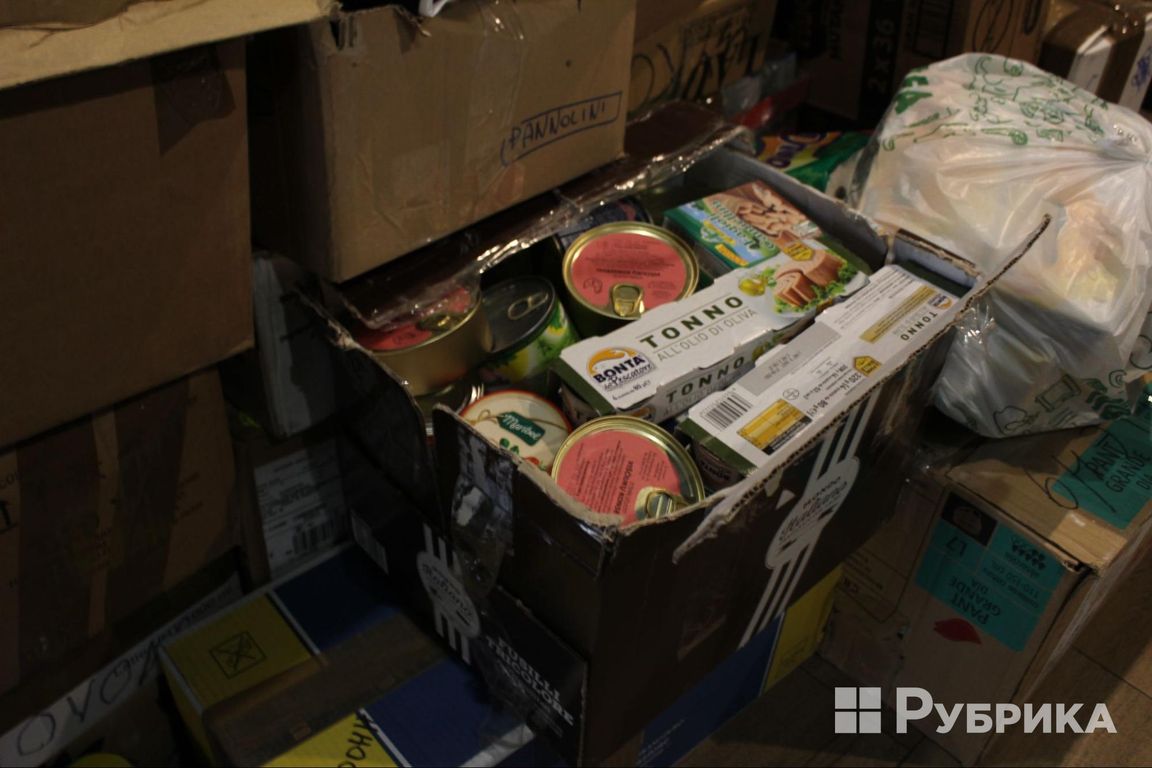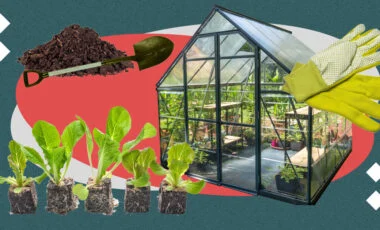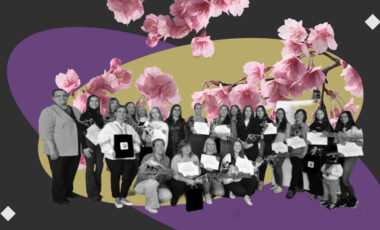How the "Volunteer Headquarters M" works: the most frequent requests, the most problematic needs
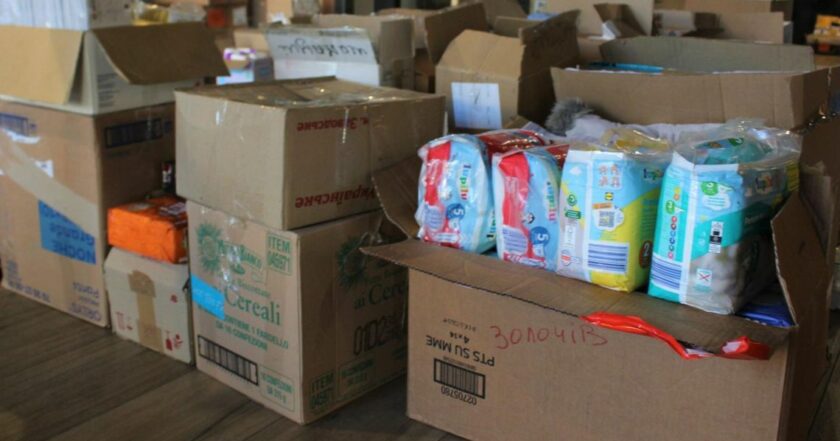
Photo: Rubryka
The Volunteer front in Ukraine is now working at breakneck intensity. The number of organizations and people united to help the military and civilians is difficult to comprehend.
Rubryka decided to use the example of one of the organizations to find out in what circumstances volunteers work now, what the main need is, and how to find something which is almost impossible to find.
That's why we visited the Volunteer Headquarters M. It is an organization of people of mostly creative professions, who have united since the beginning of russia's full-scale invasion.
Let's explain who, how and for whom they collect help. And for those who want to help volunteers not only with money, they were asked for a list of goods that are needed "for yesterday."
Who?
Veronika. Originally from Donetsk. From 2013 to 2014, she was also involved in public activities. After the start of the war in Donbas, she moved to Kyiv. She founded a PR agency specializing in public communications.
"Now they came to us again and we have decided that we will not go anywhere else, but will remain to protect our relatives."
Anna. Before the war, she worked in cinema, in the production department. She was involved in filming. She started volunteering by cooking borscht for the military. Then she joined the volunteer headquarters.
"I coordinate flashpoints where the goods should be taken. In fact, we go by ourselves, too: Vorzel, Hostomel, Bucha. I also help my hometown, because there is a humanitarian catastrophe there."
Bohdan. Until February 24, he worked as an analyst on education reform, was a journalist on the New Ukrainian School website, as well as in the Public Control Council at NABU.
"At the beginning of the war, I went to the military registration and enlistment office and enlisted in the Territorial Defense Forces. But later our company was staffed with more experienced soldiers, so I began to volunteer."
More than 20 people are actively working, and dozens of others are involved in individual tasks. They jokingly call themselves "civilian marauders" because they "occupy" the premises of an enterprise for a warehouse with humanitarian aid.
What are they doing?
Volunteer Headquarters M is focused on Kyiv, the Kyiv region, and Chernihiv. They plan to connect with other cities as well. The letter "M" in the name has two meanings. The first is the metro. Volunteers help people who hide from shelling in the Kyiv metro. The other is medicine. The main direction of the organization is the search for medicines for Territorial Defense, the Armed Forces, and civilians.
"In the first days of the war, we spent the night in the subway at the Vasylkivska station. It was very cold there and we realized that we needed to look for mats, sleeping bags, blankets. We started writing to friends. It turned out that gyms had a lot of mats and blankets. First, we brought it to Vasylkivska, and then to other stations," says Veronika.
Currently, 45 subway stations operate in Kyiv. In the first days of the war, according to the subway administration, they had about 15 thousand people. Volunteers bring hygiene products, first aid kits, and all the same sleeping bags and mats, which are constantly lacking.
"Our doctors have compiled a universal list of what is needed when the curfew lasts a long time. We are trying to provide people with this list," says Veronika.
Now the volunteers want to focus on creating a so-called untouched reserve so that in case of an increase in the number of people who want to stay in the subway, there were already all the necessary things.
They are also preparing rules for the use of subway premises as shelter. In particular, how to behave with a lot of animals in place.
"The subway does not know how to work with animals at all. And there is a real zoo now: cats, dogs, chinchillas. Everything, but snakes," volunteers say.
For the military, the Volunteer Headquarters M receives medicines and equipment for which there are requests.
"All my professional activity was related to medical projects, I have always been involved in medical reforms. Logically, we began to look for opportunities to bring medicines. We found the list of the most sophisticated drugs that are difficult to obtain at the Ministry of Health. We took the list and began to collect it. We found a list for Territorial Defense first aid kits, we have a lot of friends who take it to the border, and then we pick it up," Veronika explains.
Thus, the headquarters works in two formats: as a logistics hub that builds logistics chains to deliver aid from one point to another, and as a typical volunteer organization that receives a request, finds, purchases, and transfers the necessary assistance.
What do they need?
In the subway, according to volunteers, the greatest need is for hygiene products and medicines. Hot water is also a problem.
"With the help of several companies, we bought thermopots. These are the things that heat water and maintain the temperature. But some stations did not get them," says Veronika.
Other volunteer organizations provide food for people in the subway.
According to Bohdan, first aid kits remain one of the unmet needs of the military.
"Even elementary iodine is a huge problem," he says.
Anna adds that there is no chlorhexidine on the front. CAT-type tourniquets are also missing.
"They're harder to find now than armor," says Anna.
According to volunteers, a large military aid plane was sent from Israel to Ukraine. There are exactly 6,000 required tourniquets. But due to problems with documentation, the plane got stuck in Poland. Therefore, the need is still relevant.
At the same time, Anna emphasizes that tourniquets should be exactly of the proper brands and types. Self-made tourniquets are easily torn, and they can cost a soldier their life.
But the problems of volunteers today are not only in the absence of certain means but also in access to certain places where people need help.
"We have a lot of requests from villages that we just can't get to. For example, I had to go to Komarivka, but we didn't go because there was a large convoy of tanks. It often happens that I'm ready to go but the driver isn't. You need to understand that you are not going where you will be shot on the head. Of course, I am in favor of helping such places, but you need to have your head on your shoulders. A dead volunteer will not help anyone," says Anna.
Finally, volunteers share a list of which product groups are currently most in demand.
Medicaments:
- Analgesics;
- Antipyretics;
- Antibiotics or fluoroquinolones, other antibacterial drugs;
- Penicillin antibiotics (eg Augmentin, Amoxiclav)
- Non-steroidal anti-inflammatory drugs (eg Diclofenac, Ibuprofen, Nimesulide, Meloxicam, Salicylic acid);
- Sedatives (anxiolytics, hypnotics);
- Nasal drops;
- Pills and sprays for sore throat;
- Antifungal ointments;
- L-thyroxine;
- Euthyrox;
- Any ointments for the treatment of infectious or purulent wounds;
- Hemostatic tourniquets;
- Anti-burn bandages, sprays, ointments;
- Hemostatic sponges;
- Syringes (for intramuscular injection).
Food:
- Instant soups and porridges;
- Cereals;
- Sugar;
- Baby food.
Hygiene and clothing:
- Diapers for children and adults;
- Toothpaste and brushes;
- Thermal underwear;
- Warm buffs and balaclavas;
- Underwear;
- Tactical footwear;
- Tactical gloves;
- Military backpacks;
- Individual first aid kits of NATO standard;
- Harnesses and pockets.


